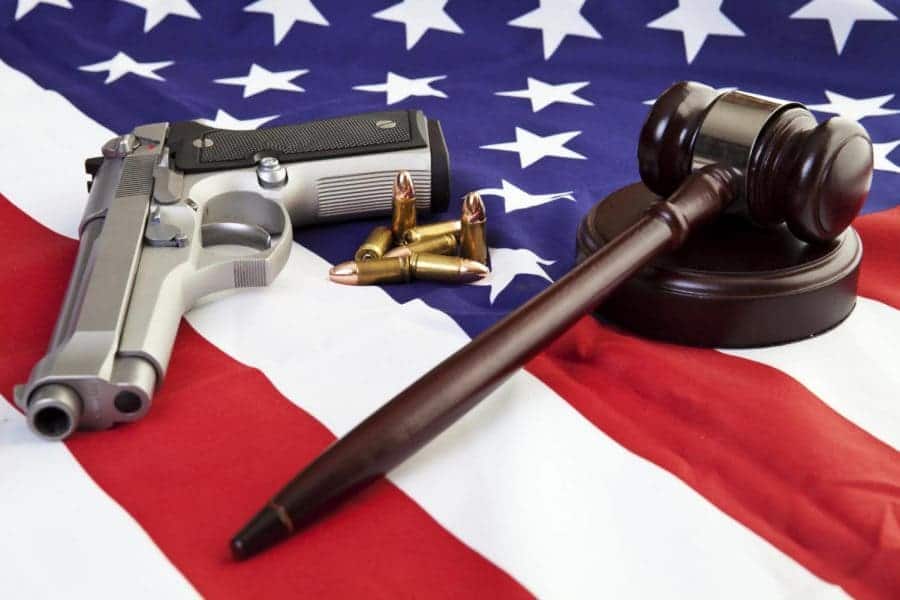If you have a gun that you’re not legally allowed to possess, you might be facing criminal charges. Gun Possession penalties can range from minor offenses to crimes that carry a three to five year prison sentence. Read on to learn about the different types of gun crimes and the penalties for each one. You’ll also learn what the penalties are if you’re caught with a gun.
Unlawful Possession is punishable by 3 to 5 years in prison
If you are caught possessing a firearm without a permit, you may be sentenced to three to five years in prison. It is also illegal to possess replica or toy guns. In addition, possessing weapons that are destructive or defaced may also result in prison time.
A defense attorney can help you get the charges dropped or reduced. He can also negotiate for a plea bargain for you. In addition, he can provide you with legal counsel throughout the entire process and calm any fears about the punishment you may face. He will also help you prepare a solid defense strategy.
SS 924(c) is a very serious crime that can result in a three to five-year prison sentence. This law can even apply to nonviolent gun owners with a legally registered rifle in the home. The charge is usually associated with another criminal charge, such as drug possession or carjacking.
Possession of a loaded weapon
If you find yourself in possession of a loaded weapon, you’re facing penalties that are as severe as those for other crimes. These penalties are based on the intent of the offender. If you’re caught, the prosecutor will have to prove that you have control over the weapon. Many states prohibit the possession of certain kinds of weapons, such as firearms.
Possession of a loaded weapon is a Class C felony. In New York, a firearm that has ammunition in its chamber or cartridge is considered a loaded weapon. This crime can carry severe penalties, including up to 15 years in prison.
Possession of a firearm by a convicted felon
Possession of a firearm by a felon may seem like a straightforward charge, but the facts of the case can present many complications. First of all, the government must prove beyond a reasonable doubt that the felon was in fact in possession of the firearm. This can be a challenge if the police violated the felon’s rights during the search. In addition, there are a number of other issues that could cast doubt on the government’s case.
Possession of a firearm by a felon is a federal crime punishable by up to 10 years in federal prison. The law applies to both firearms and ammunition. This crime can even apply to someone without a prior felony conviction. In addition, this charge can be pursued in state court as well.
Possession of a firearm by a minor
Possession of a firearm by a child or a minor is a crime under Pennsylvania law. A minor can only possess a handgun if they have written permission from a parent, guardian, or person acting in loco parentis. A handgun is a firearm that is short and designed to be fired with one hand. A handgun can be assembled from any number of parts.
A child who is found in possession of a weapon will likely be arrested, and he or she will face a number of penalties. First, the court can sentence the minor to community service. Community service means that the juvenile will have to volunteer for a specified amount of hours at a local charity or other approved organization. If the child successfully completes a community service program, the court will dismiss the charges.
Possession of a prohibited weapon by a person with certain mental health adjudications
There are some people who are prohibited from possessing a firearm due to mental health issues. These individuals may not have a criminal record, but they may have a mental health issue that could lead them to harm other people. This is a serious issue that needs to be addressed in order to keep the public safe. The federal government should make sure that the criteria for disqualification are clear, and states should enact legislation that would strengthen the current laws. In addition, the process for restoring firearm rights should be revised to protect the public while making it fair for those seeking to regain their rights.
One of the most controversial parts of the Newtown gun violence law is the mental health law. The law requires mental health providers to report their patients who are violent. This will allow police to check the patient’s name against a handgun permit registry to ensure they do not have a gun.
